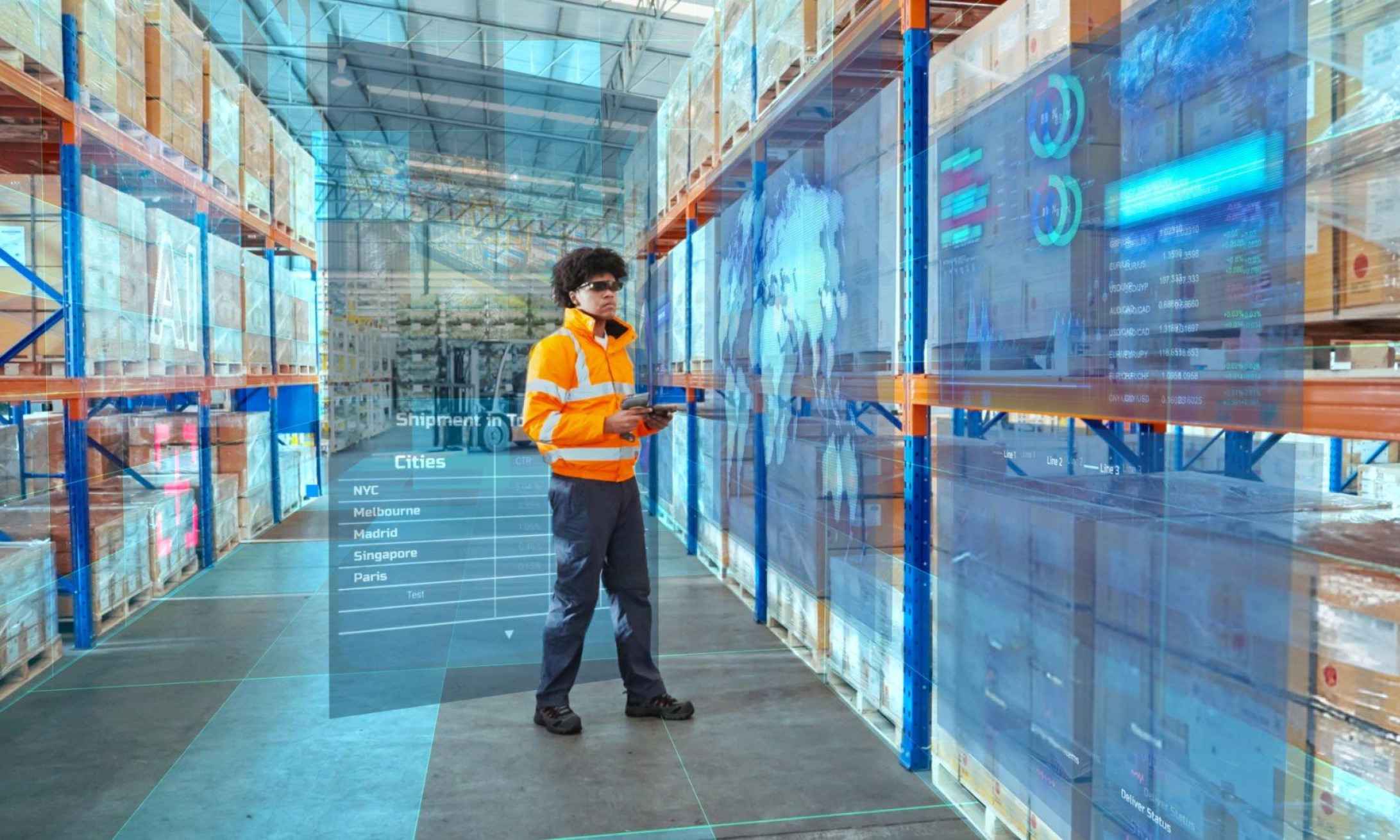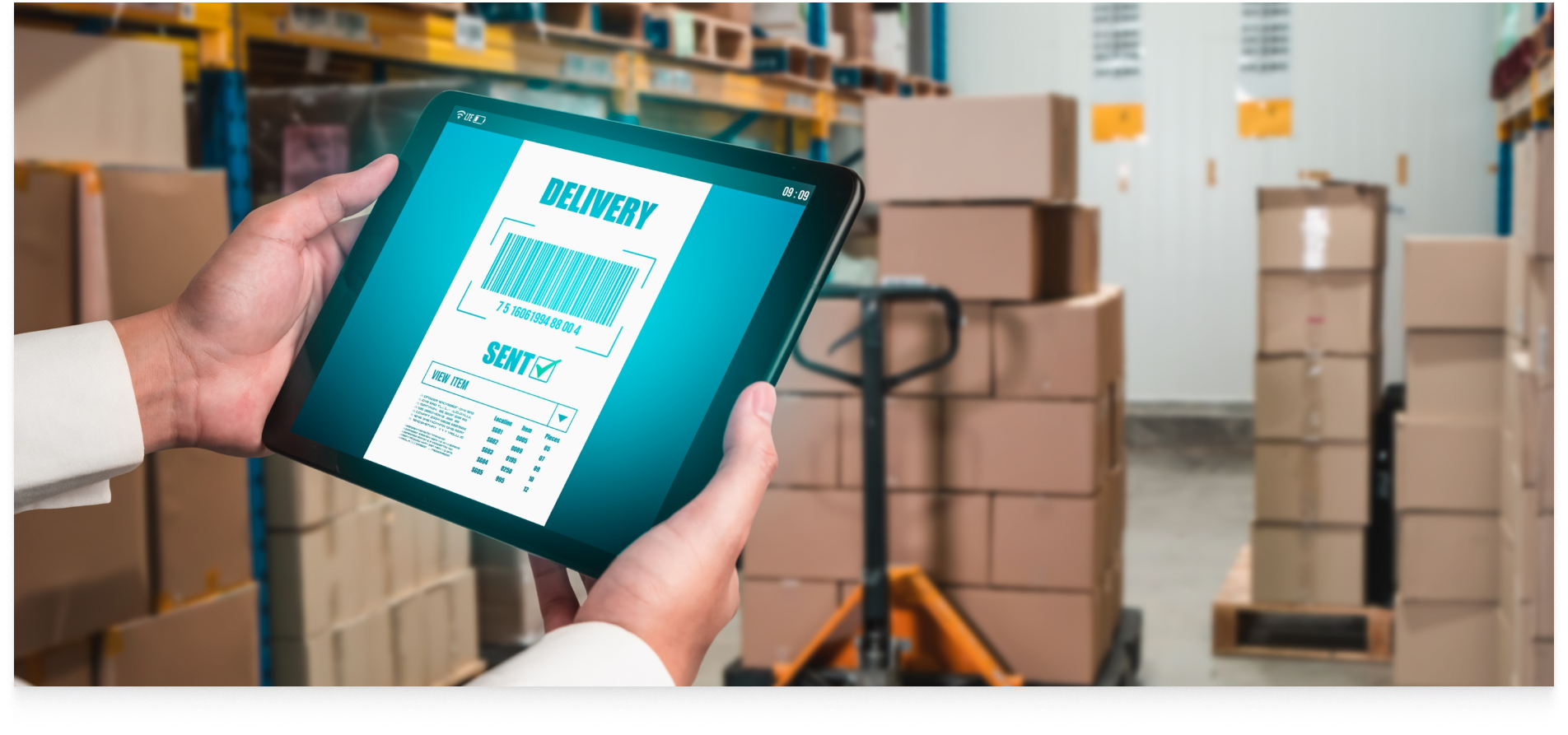1 / 6
01
02
03
04
05
06
undefined!
iMile Sets New Record During Ramadan with 52% Year-over-Year Order Growth

iMile is proud to announce a
record-breaking performance in the Middle East over the 2025 Ramadan season. The
company reported a 52% year-on-year increase in logistics orders across the region, setting a
new record. In addition, iMile achieved a 99% first-attempt delivery rate within 24 hours and
a 91.4% sign-off rate for Cash on Delivery (COD) orders, successfully managing peak season
demand with zero backlog. This accomplishment demonstrates iMile’s strong capabilities in
the Middle East logistics industry. Tackling Ramadan Challenges with Smart Tech and Strategic Planning
Ramadan brings a unique set of challenges to the Middle East logistics sector— reduced
working hours, resource constraints, and a rapid surge in order volumes. To stay ahead, iMile
began its preparations as early as September 2024, leveraging historical data analysis and
market trend forecasting to optimize resources and ensure network stability during peak
periods. On the operational front, iMile acquired hundreds of new delivery vehicles and
established additional hubs to enhance overall delivery capacity. The company also increased
its workforce by recruiting and training drivers and operational staff to ensure consistent
service quality throughout the busy season.
Furthermore, iMile introduced smart technology solutions and implemented a comprehensive
network upgrade to support its logistics operations during the high-demand period. In early
February of 2025, the company launched a 20,000-square-meter smart logistics sorting center
in Riyadh, equipped with industry-leading automated sorting systems. The facility's
effectiveness and accuracy in parcel sorting were greatly enhanced, providing a solidfoundation for handling large order volumes. Also, iMile utilized intelligent technologies to
optimize operations, including an algorithm-based order forecasting system that accurately
predicts daily shipment volumes and dynamically adjusts capacity to meet fluctuating demand. Finally, a centralized system for real-time operational monitoring was implemented to ensure
efficient coordination across all logistics processes, including transportation, sorting, and
delivery.
To improve operational resilience, iMile established an emergency response system to address
any unexpected challenges such as capacity constraints or severe weather conditions. During
the peak season, the company also held daily meetings with partners and government entities
to work together on improving customs clearance delays and preventing parcel backlogs.Eight Years in the Region: Building a Strong Foundation for Market Leadership
iMile’s standout performance this season comes from its deep roots in the Middle East. Since
its founding in Dubai in 2017, iMile has systematically expanded its regional network, and
now it has a smart logistics infrastructure that covers all six GCC countries. With a
high-density network of last-mile service points, iMile ensures timely and reliable deliveries
which effectively meeting the high-frequency demands of the e-commerce peak season. This
powerful network has become a cornerstone of the company’s competitive advantage in the
regional market. Through sustained strategic investments, iMile has built significant operational and regulatory
strengths in the Middle East. To expand its regional presence in Saudi Arabia, iMile had
overcome significant obstacles and gain certification for B2C customs clearance in April 2023. The company’s deep-rooted local operations, strong government and partner relationships, diverse client base, and localized talent pool have fostered a professional team with both
global expertise and regional insights. This combination of regulatory compliance and marketadaptability has solidified iMile’s position as a leader in the Middle East e-commerce logistics
sector.
Technology Fuels Innovation and Efficiency
Technology remains at the heart of iMile’s growth strategy. The company has established over
200,000 square meters of smart warehousing facilities in major Middle East markets, equipped with automated sorting lines that can process millions of parcels. iMile also offers
end-to-end shipment tracking for full delivery transparency. Using its own smart logistics
algorithms, iMile optimizes routes, allocates orders efficiently, and forecasts
demand—pushing operational efficiency to new heights and driving innovation into the
logistics industry. This exceptional peak season performance not only highlights iMile’s operational excellence
but also reinforces its leadership in the Middle East e-commerce logistics market. "The
Middle East e-commerce sector is at a pivotal stage of rapid growth, where logistics stability
and efficiency are more critical than ever. At iMile, we remain committed to our
'customer-first' approach, continuously enhancing our services and collaborating with partners
to drive market growth. Together, we aim to build a more efficient and intelligent logistics
future." said Rita Huang, iMile’s Founder and CEO. Moving Forward, iMile will continue to invest in technological innovation and localized
operations, leveraging smart solutions and superior service to elevate industry standards and
deliver high-quality logistics solutions to global consumers and e-commerce platforms.*Business data referenced in this release is based on iMile’s internal system statistics for GCC operations during
the 2025 Ramadan period. Actual service performance may vary due to regional, environmental, or weather-related factors.
Unlocking E-commerce Potential During Ramadan: Winning Strategies for Businesses

Ramadan, the holy month of fasting, reflection, and community, also ignites a surge in consumer spending. For e-commerce businesses, it’s an ideal moment to engage customers and drive growth. Here’s how to seize this opportunity with intention and insight.
The Ramadan Opportunity
Across the Middle East, e-commerce sales soar 30%-40% during Ramadan, fueled by demand for festive goods, tech innovations, and meaningful gifts. With fasting shifting routines, shopping peaks after sunset—over 60% of it on mobile devices. Customers crave purchases that resonate, from Ramadan decor to wellness essentials, making this a season ripe with huge potential.
6 Strategies to Succeed
Decode Customer Desires with Precision: Don’t just skim trends—dig into past Ramadan sales and social media buzz to uncover what truly excites your audience. For example, nostalgia could be a trend for this year: think retro Ramadan lanterns or heritage recipe kits. Align your offerings with these emotional triggers, not just the usual lineup.
Reimagine Your Digital Space: Skip the basic festive banner and instead, create an immersive Ramadan hub on your site—add interactive features like a “Build Yourself Eid Gift Box” tool to captivate visitors. With mobile driving over 60% of sales, ensure every click is seamless on screens.
Design Promotions with Personality: Forget generic discounts and launch “Iftar Flash Drops”—quick, limited-time sales tied to breaking the fast—or a “Gift Forward” deal where each purchase unlock a donation to a local cause. It could be fresh, meaningful, and keeps customers returning.
Bridge the Time Gap: Ramadan also turns shoppers into night owls. It would be a good idea to offer 24/7 support with a chatbot handling common questions (e.g., “When’s my Eid order arriving?”), backed by human help for tougher issues. It’s a lifeline that converts late-night interest into sales.
Tell a Bigger Story: Move beyond sales talk. It's time to team up with a regional artist for Ramadan-themed packaging, then make sure to share the story via TikTok or Instagram Reels with tag "#RamadanCrafted" can spark real buzz. It’s the time about connection, not just commerce.
Rethink Delivery Impact: Orders will surge during this season, so don’t just focus on speed—add value. Offer “Ramadan Prep Packs” (e.g., decor and sweets in one shipment) to reduce delivery runs and appeal to eco-minded buyers. Pair this with a reliable partner like iMile for precision.
Challenges like stock shortages or delivery delays can arise, but preparation is key. Use predictive tools to stock wisely, and test a micro-fulfillment hub in high-demand areas—like urban pop-up warehouses—to sidestep last-minute hiccups.
The Way Forward
These strategies can turn Ramadan into a standout season, deepening customer ties and boosting revenue. Looking ahead, innovations like AI-curated gift picks or carbon-neutral shipping could sharpen your edge. Again, this isn’t just about profit—it’s about weaving your brand into Ramadan’s fabric. Start now, and craft a season that’s memorable for your customers and your bottom line!
The Future of Smart Logistics in the Middle East

The Middle East is rapidly emerging as a global leader in
smart logistics, driven by its unique geographic position, government-backed
technological advancements, and the growing demands of e-commerce and trade. As
regional economies diversify and modernize, logistics is undergoing a digital
transformation that promises to redefine the movement of goods across cities,
borders, and continents.The Current Landscape: A Rapidly Growing Sector
Strategic
Location: The Middle East bridges three continents—Asia, Africa, and
Europe—making it a vital logistics hub for global trade. Ports like Jebel
Ali in Dubai and King Abdullah Port in Saudi Arabia are among the busiest
and most advanced in the world.
E-commerce
Expansion: With a projected annual growth rate of over 20% in
e-commerce, the region is witnessing an unprecedented demand for faster,
smarter delivery solutions.
Smart
Cities Integration: Urban centers like Dubai, Riyadh, and Doha are
incorporating smart logistics into their broader smart city frameworks,
ensuring streamlined last-mile delivery and integrated supply chains.
Key Trends Shaping the Future of Smart Logistics
Adoption
of Autonomous Technologies: Autonomous vehicles and drones are no longer just futuristic concepts.
Companies in the UAE and Saudi Arabia are piloting autonomous delivery
vehicles and drone-based deliveries, aimed at tackling urban congestion
and enhancing efficiency. These technologies are expected to significantly
reduce last-mile delivery costs, one of the largest expenses in logistics
operations.
Blockchain
for Supply Chain Transparency: Blockchain is transforming supply chain management by enabling real-time
tracking and tamper-proof records of shipments. Governments and private
firms are adopting blockchain to enhance transparency and reduce
inefficiencies, particularly in sectors like food safety, pharmaceuticals,
and luxury goods.
AI
and Predictive Analytics: Artificial intelligence (AI) is optimizing every step of the logistics
process—from route planning and demand forecasting to warehouse
management. Predictive analytics allows businesses to anticipate customer
demand, minimize waste, and ensure that resources are allocated
efficiently.
Sustainability
Initiatives: Environmental concerns are driving the adoption of green logistics.
Electric delivery vehicles, optimized delivery routes, and eco-friendly
packaging are becoming standard practices for logistics companies in the
Middle East, aligning with global sustainability goals. For example, Dubai
has launched initiatives to promote carbon-neutral logistics as part of
its Green Economy Strategy.
Investment
in Infrastructure: Governments are heavily investing in logistics infrastructure, such as the
expansion of ports, rail networks, and free zones.Saudi Arabia’s Vision
2030 includes significant investments in logistics hubs, while the UAE’s
Etihad Rail project is poised to revolutionize the transportation of goods
across the region.
Challenges and Opportunities
While the future of smart logistics in the Middle East is
promising, some challenges remain:
Regulatory
Frameworks: The rapid pace of innovation often outstrips the
development of regulations, particularly in areas like drone usage and
autonomous vehicles.
Regional
Connectivity: While individual countries have advanced logistics
capabilities, cross-border integration requires further development to
unlock the region’s full potential.
Talent
Development: The transition to smart logistics demands a skilled
workforce capable of managing advanced technologies.
These challenges also present opportunities. Governments and
private players are already addressing these gaps through investments,
partnerships, and training initiatives.
The Road Ahead
The Middle East is setting the benchmark for smart logistics
by leveraging technology, innovation, and strategic investments. As businesses
and governments work together to overcome challenges, the region is poised to
become a global leader in efficient, sustainable, and technology-driven
logistics solutions.
In the coming years, smart logistics will not only meet the
region's growing demands but also enhance its global competitiveness, ensuring
that the Middle East remains a vital player in the global supply chain
ecosystem. For businesses like iMile, this presents a golden opportunity to
drive innovation and set new standards in delivery excellence.
The future of logistics in the Middle East isn’t just
smart—it’s transformative. And it’s happening now.


















